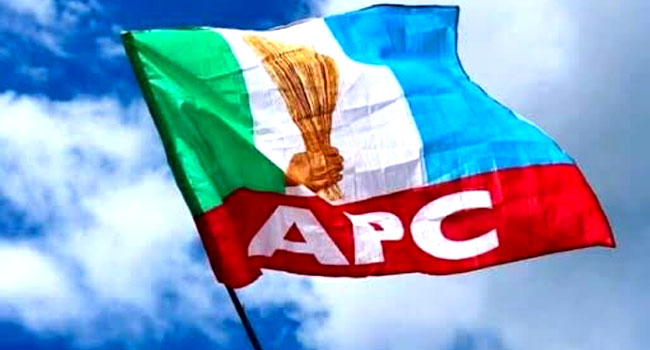The All Progressives Congress (APC) in Benue State is embroiled in a bitter leadership crisis, a power struggle that has resurfaced with renewed intensity following the presence of former chairman, Austin Agada, at a national party meeting in Abuja. The meeting, attended by the national chairman, Abdullah Ganduje, ignited a fresh wave of accusations and counter-accusations between the factions vying for control of the state chapter. This ongoing feud underscores the deep divisions within the party, reflecting a broader political struggle between Governor Hyacinth Alia and the Secretary to the Government of the Federation, Senator George Akume, with each seemingly backing a different side in the APC leadership dispute.
The current caretaker committee chairman, Dr. Benjamin Omale, responded swiftly and sharply to Agada’s presence at the Abuja meeting. In a statement released to the public, Omale accused Agada of “gatecrashing” the event merely for publicity, labeling him an “imposter” engaging in a “sneak and snap show” to create a false impression of legitimacy. Omale’s statement highlights the contentious nature of the leadership dispute, emphasizing the deep mistrust and animosity between the competing factions. He further underscored Agada’s alleged pattern of appearing at events involving the national chairman, Ganduje, solely for photo opportunities, implying a calculated attempt to project an image of influence and authority he no longer possesses.
The roots of this conflict can be traced back to the power struggle between Governor Alia and Senator Akume. This rivalry led to the dissolution of the Agada-led state working committee by the national leadership of the APC and the subsequent installation of a caretaker committee headed by Omale. Agada, however, challenged this decision in the Benue State High Court and secured a ruling reinstating him as chairman. Despite this legal victory, Omale and his committee have continued to operate as the party leadership in Benue, creating a situation of dual leadership and further exacerbating the internal conflict. This disregard for the court ruling adds another layer of complexity to the crisis, raising questions about the rule of law within the party and the potential for further legal challenges.
The caretaker chairman, Omale, further reinforced his position by highlighting the party’s success in the local government elections held on October 5, 2024, under his leadership. He pointed to the APC’s landslide victory as evidence of the caretaker committee’s effectiveness and legitimacy, implicitly contrasting it with Agada’s purported inactivity and lack of contribution to the party’s electoral success. This claim of electoral triumph serves as a key argument for Omale’s faction, suggesting that their leadership has delivered tangible results and therefore deserves recognition.
Agada’s faction, however, vehemently denies Omale’s accusations. In a statement issued by the Agada-led faction’s Publicity Secretary, Daniel Ihomun, they assert that Agada remains the duly elected chairman and attended the Abuja meeting on official invitation. They characterize Omale’s statements as false and a deliberate attempt to damage Agada’s reputation and undermine his leadership. Furthermore, they question Omale’s standing within the party, claiming that his name is not on the party register and that his position as Unity Committee Chairman is an invention, unrecognized by the party’s constitution. This counter-offensive challenges the very foundation of Omale’s authority, questioning his membership and the legitimacy of his position.
This ongoing leadership crisis within the Benue State chapter of the APC has significant implications for the party’s future. The internal divisions and power struggles threaten to weaken the party’s cohesion and effectiveness, potentially impacting its performance in future elections. The competing claims of legitimacy, coupled with the disregard for court rulings, create an environment of uncertainty and instability, hindering the party’s ability to focus on its political agenda and address the needs of the people of Benue State. The resolution of this crisis is crucial for the APC to regain its footing and effectively function as a united political force. The ongoing conflict raises serious questions about the party’s internal processes and its commitment to democratic principles. The continued power struggle threatens to further fragment the party and erode public trust, jeopardizing its long-term prospects in Benue State. A lasting solution requires addressing the underlying causes of the conflict, including the personal ambitions and political rivalries that fuel the dispute. Until a resolution is found, the Benue State chapter of the APC remains deeply fractured, its future uncertain.


